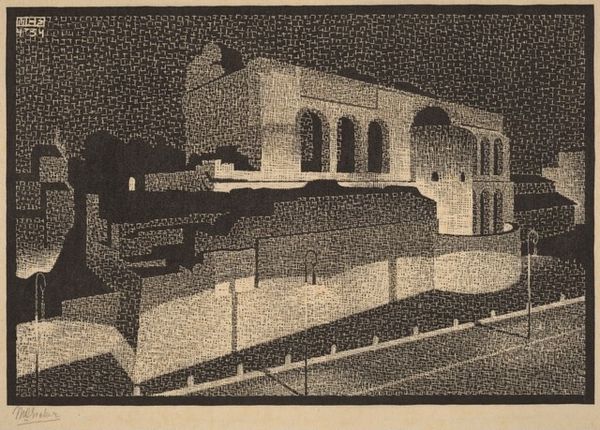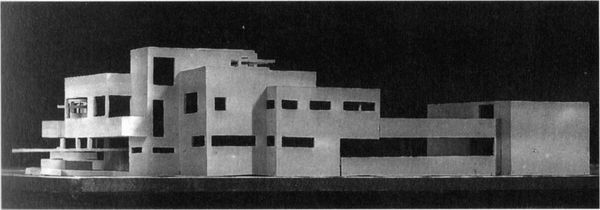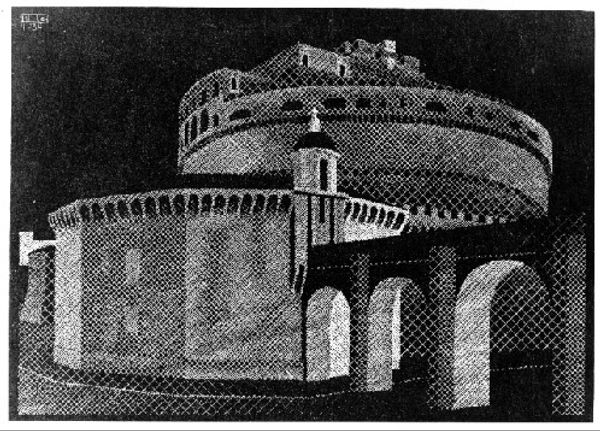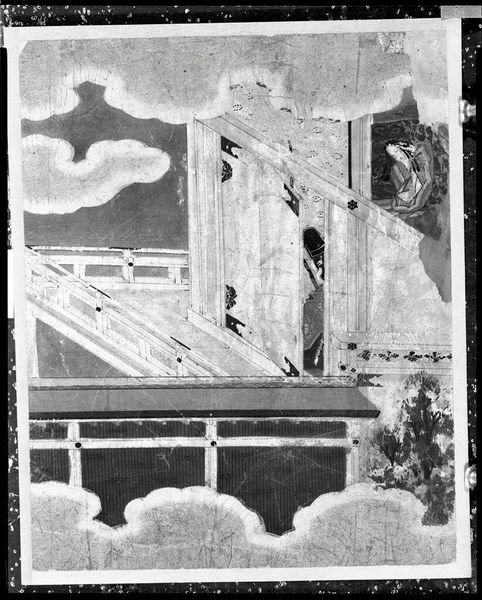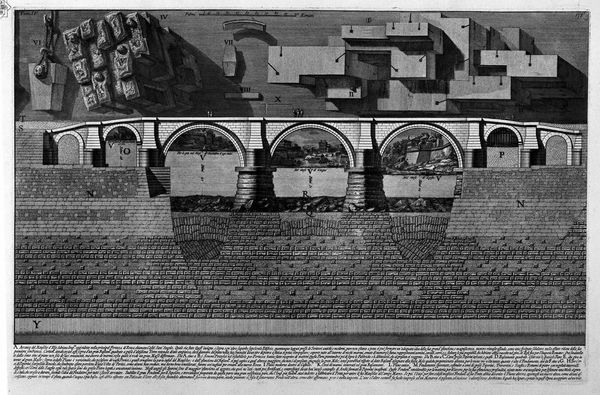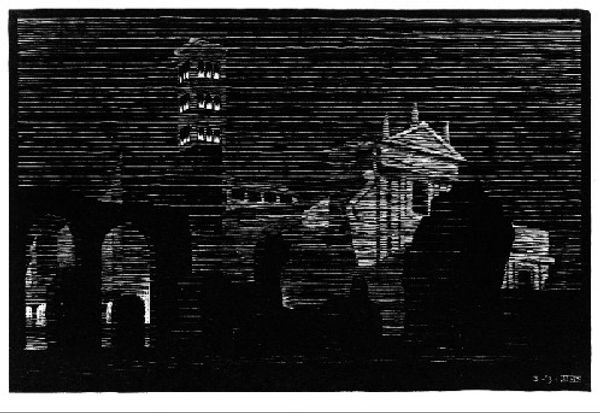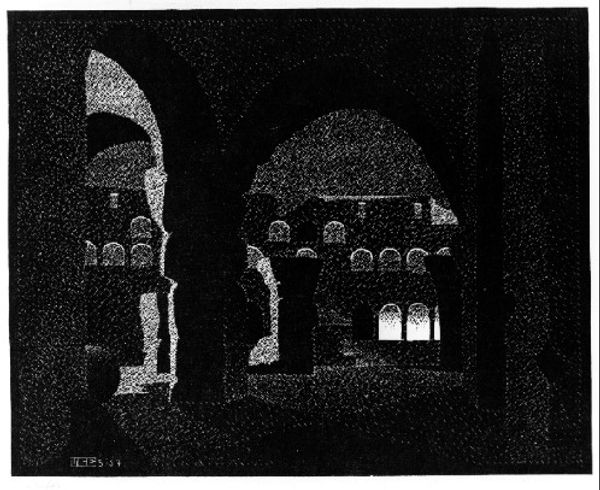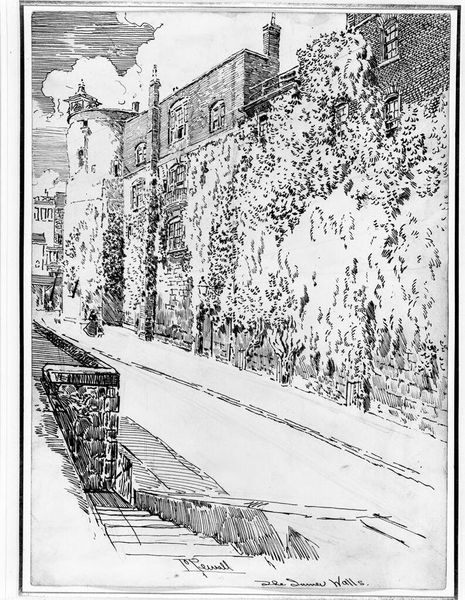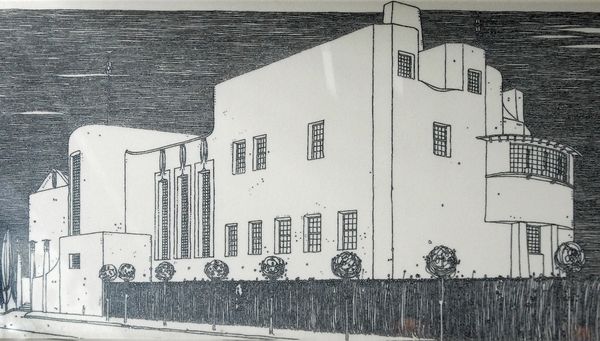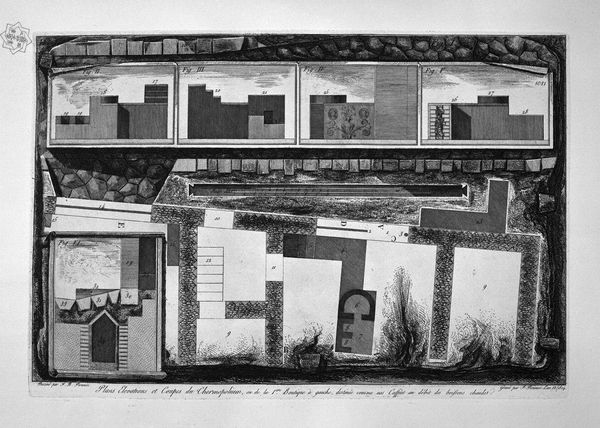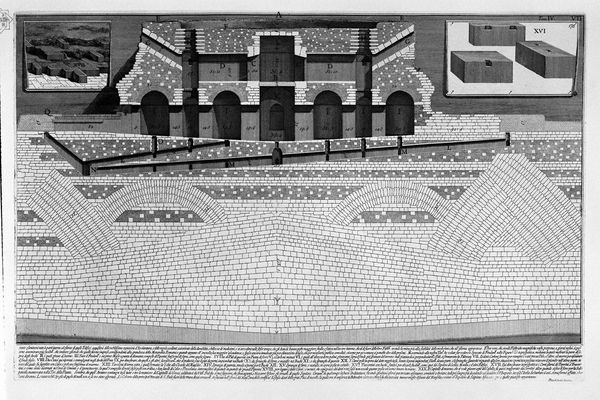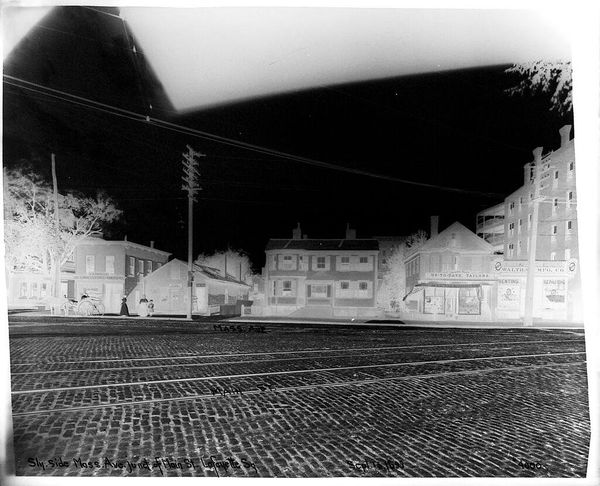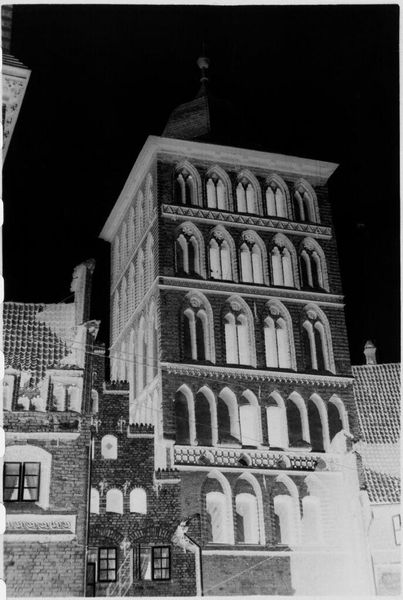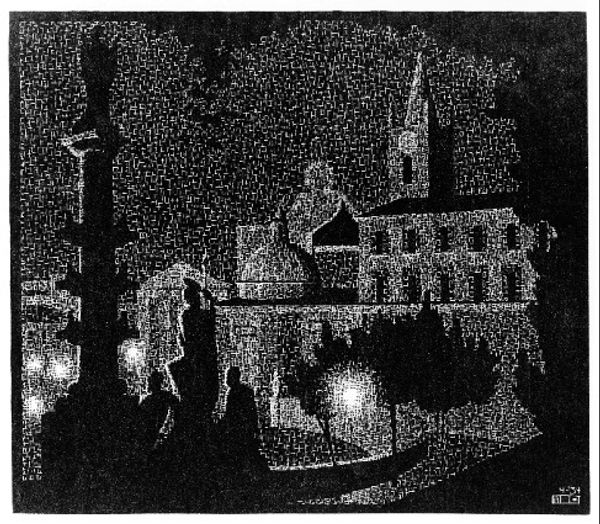
drawing, print, photography, graphite
#
art-deco
#
drawing
# print
#
photography
#
geometric
#
graphite
#
cityscape
#
building
#
monochrome
Copyright: M.C. Escher,Fair Use
M.C. Escher made this depiction of the Basilica of Constantine in Rome using lithography. It's interesting to note that Escher, while celebrated for his mathematically inspired prints, found early inspiration in architectural subjects. This print, with its stark contrast and almost abstract representation of a historical structure, prompts us to think about the artist's role in interpreting cultural heritage. Consider the Basilica itself, a Roman ruin that speaks to a powerful past. Escher made this print in 1935, during a period of heightened nationalism throughout Europe. Was he consciously engaging with Rome’s imperial past? Does he critique the institutions of art or the social structures of his time? As historians, we might look into travel journals, photographs, and architectural studies of the period to better understand the cultural significance of Roman ruins and Escher's artistic choices. In the end, the Basilica is not just a building; it’s a symbol, and its representation reflects the concerns of a particular moment in history.
Comments
No comments
Be the first to comment and join the conversation on the ultimate creative platform.
